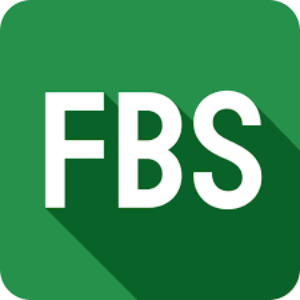
Finding a reliable forex broker in the UK is crucial for anyone interested in forex trading. The best forex brokers offer competitive fees, advanced trading platforms, and valuable educational resources for traders at all levels. In this blog post, I will share the top forex brokers in the UK for 2025, helping you to make informed choices for your trading journey. With the right broker, you can effectively navigate the dynamic forex market and maximize your trading potential.
Understanding the regulatory framework and what each broker offers can save you time and money. I will explore aspects like trading costs, account types, and customer support, ensuring you are equipped with everything you need to know. Selecting the right broker can lead to successful trading experiences while maintaining the security of your investments.
By the end of this article, you will have a clear picture of the best options available. You will feel confident in your ability to trade forex in the UK with a broker who meets your trading style and needs.
7 Best Forex Brokers for UK Traders (2025)
| Broker | Regulation | Platforms | Key Strength | Ideal For | Experience Level |
|---|---|---|---|---|---|
| IG | FCA | MT4, ProRealTime | Extensive assets, solid education | All levels | |
| CMC Markets | FCA | MT4, NextGen | Tight spreads, great analytics | Intermediate & above | |
| Pepperstone | FCA | MT4, MT5, cTrader | Fast execution, low spreads | Day traders & scalpers | |
| Plus500 | FCA | Proprietary | Easy-to-use, robust risk controls | Simplicity-seekers | |
| eToro | FCA | Proprietary | Copy trading, user-friendly | Beginners & social fans | |
| XTB | FCA | xStation 5, MT4 | Solid education, competitive pricing | Learners & DIY traders | |
| FxPro | FCA | MT4, MT5, cTrader | Platform choice, institutional features | Professionals |
7 Best Forex Brokers for Traders in the UK
1. IG
Founded in 1974, IG is one of the most established and reputable brokers globally. They offer a comprehensive range of financial instruments and a user-friendly trading experience for all types of traders.
Key Features:
- Regulation: Regulated by the Financial Conduct Authority (FCA).
- Platforms: Offers MetaTrader 4 (MT4), ProRealTime, and IG’s proprietary platform.
- Market Coverage: Over 17,000+ trading instruments including forex, indices, shares, commodities, and cryptocurrencies.
- Educational Resources: Extensive educational materials, webinars, and courses.
- Mobile Trading: Highly rated mobile app for trading on the go.
- Research Tools: Provides in-depth market research, news, and analysis.
Pros:
- Reliable and well-regulated broker.
- Competitive spreads and low fees.
- Excellent educational content for beginners.
Considerations:
- Platform may seem complex for absolute beginners.
- Higher minimum deposit compared to some competitors.
2. CMC Markets
Established in 1989, CMC Markets is known for its competitive pricing, advanced trading tools, and robust platform options.
Key Features:
- Regulation: Regulated by the FCA and listed on the London Stock Exchange.
- Platforms: Next Generation platform and MetaTrader 4 (MT4).
- Market Coverage: Access to over 11,000 instruments, including forex, indices, stocks, and commodities.
- Trading Tools: Advanced charting, pattern recognition, and risk management tools.
- Mobile App: Feature-rich mobile trading app.
Pros:
- Tight spreads and low trading fees.
- Advanced tools and analytics.
- Strong reputation and reliability.
Considerations:
- Next Generation platform may require a learning curve for new users.
- No cryptocurrency trading available.
3. Pepperstone
Founded in 2010, Pepperstone is known for its lightning-fast execution and competitive spreads, making it ideal for day traders and scalpers.
Key Features:
- Regulation: Regulated by the FCA, ASIC, and other global authorities.
- Platforms: MetaTrader 4 (MT4), MetaTrader 5 (MT5), cTrader, and TradingView.
- Market Coverage: Offers forex, indices, commodities, and cryptocurrencies.
- Execution Speed: Ultra-fast execution with low latency.
- Customer Support: 24/5 customer support with responsive service.
Pros:
- Low spreads and fast execution.
- Multiple platform options.
- Ideal for algorithmic and high-frequency trading.
Considerations:
- Limited educational resources.
- No proprietary trading platform.
4. Plus500
Plus500 is a well-known CFD provider offering a user-friendly platform and competitive spreads. It’s a great choice for traders who prefer simplicity.
Key Features:
- Regulation: Regulated by the FCA and other major financial authorities.
- Platforms: Proprietary Plus500 platform (WebTrader and Mobile).
- Market Coverage: Over 2,000 instruments, including forex, shares, commodities, and cryptocurrencies.
- Risk Management: Guaranteed stop-loss orders available.
- Mobile App: Intuitive and highly rated mobile trading app.
Pros:
- Simple and easy-to-use platform.
- Tight spreads and no commission fees.
- Robust risk management tools.
Considerations:
- Limited tools for advanced technical analysis.
- No access to MetaTrader platforms.
5. eToro
eToro is renowned for its social trading capabilities, allowing traders to copy the strategies of successful investors.
Key Features:
- Regulation: Regulated by the FCA, ASIC, and CySEC.
- Platforms: Proprietary eToro platform (Web and Mobile).
- Market Coverage: Forex, stocks, ETFs, indices, commodities, and cryptocurrencies.
- Copy Trading: Unique CopyTrader feature for social and copy trading.
- Education: Offers trading courses, guides, and webinars.
Pros:
- Innovative social trading features.
- Wide variety of assets.
- User-friendly interface for beginners.
Considerations:
- Higher spreads compared to some competitors.
- Withdrawal and inactivity fees apply.
6. XTB
XTB is known for its award-winning proprietary platform and competitive spreads. It offers a solid combination of simplicity and advanced features.
Key Features:
- Regulation: Regulated by the FCA, KNF, and CySEC.
- Platforms: xStation 5 (Web, Mobile, and Desktop) and MetaTrader 4 (MT4).
- Market Coverage: Forex, indices, stocks, ETFs, and commodities.
- Educational Tools: Comprehensive learning resources for traders.
- Customer Support: 24/5 multilingual customer service.
Pros:
- Fast and reliable execution.
- User-friendly, feature-rich platform.
- Competitive spreads and transparent fees.
Considerations:
- No access to MetaTrader 5.
- Limited cryptocurrency offerings.
7. FxPro
Established in 2006, FxPro is a trusted broker offering a variety of platforms and a strong regulatory framework.
Key Features:
- Regulation: Regulated by the FCA, CySEC, and FSCA.
- Platforms: MetaTrader 4 (MT4), MetaTrader 5 (MT5), and cTrader.
- Market Coverage: Forex, CFDs on indices, shares, futures, and commodities.
- Execution: Offers both market execution and instant execution options.
- Customer Support: 24/5 multilingual support.
Pros:
- Multiple trading platforms.
- Strong regulatory oversight.
- Suitable for both beginners and advanced traders.
Considerations:
- Higher spreads on certain account types.
- Limited educational resources compared to competitors.
What Makes a Forex Broker the Best?
Beyond regulation, you’ll want to consider:
- Trading platforms (MT4, MT5, proprietary)
- Spread and commission costs
- Execution speed
- Education and tools for beginners
- Customer support
Let’s break these down a bit more.
Spread & Commission Comparison
| Broker | Typical Spread on EUR/USD | Commission | Notes |
| IG | 0.6 pips | None | Great for low-volume traders |
| Pepperstone | 0.1 pips (Razor) | $3.50/lot | Ideal for scalping |
| CMC Markets | 0.7 pips | None | Transparent pricing |
| FxPro | 0.3 pips (Raw+) | $4.50/lot | Lower spreads for pro traders |
This comparison helps you quickly identify which provider matches your cost sensitivity.
Regulatory Framework in the UK

Choosing a broker regulated by the Financial Conduct Authority (FCA) provides peace of mind. According to Michael Casey, Financial Analyst at TradingExperts.io:
“An FCA license ensures your broker operates transparently and protects client funds through strict rules and compensation schemes.”
Indeed, under the Financial Services Compensation Scheme (FSCS), you’re covered for up to £85,000 if the broker collapses.
The regulatory framework in the UK is essential for ensuring the safety and reliability of forex trading. The main authority overseeing this area is the Financial Conduct Authority (FCA). Regulations protect traders and maintain the integrity of the financial system, providing a clear structure for brokers operating in the UK.
Role of the Financial Conduct Authority
The Financial Conduct Authority (FCA) is the primary regulator for financial firms in the UK. Its main role is to protect consumers, enhance market integrity, and promote competition among financial service providers. The FCA regulates forex brokers to ensure they meet strict standards. This includes having adequate capital, following fair trading practices, and providing transparent information to clients. Brokers must also segregate client funds, keeping them separate from their own operating funds. This helps safeguard your money if a broker faces financial difficulties.
Financial Services Compensation Scheme
The Financial Services Compensation Scheme (FSCS) is another vital component of the UK’s regulatory framework. It protects consumers by compensating them if their broker fails or goes bankrupt. If a FCA-regulated broker goes out of business, you may be entitled to claim up to £85,000 per person, per institution. This compensation coverage adds a layer of security for traders, encouraging confidence in engaging with FCA-regulated brokers. Knowing that there is a safety net can ease concerns about losing funds in the forex market.
Benefits of FCA-Regulated Brokers
Engaging with FCA-regulated brokers offers numerous benefits. First, these brokers are held to high ethical standards, which promotes fair and transparent trading. They are required to provide clear information on fees and risks associated with trading, helping you make informed decisions. Additionally, FCA regulation ensures that brokers participate in ongoing training and compliance checks. This means you have access to brokers that continually strive to improve their services. Ultimately, trading with FCA-regulated brokers helps protect your investment and can enhance your overall trading experience.
Best Forex Broker UK for Beginners
If you’re new to the scene and looking for the best forex trading platform UK for beginners, eToro might just be your best bet.
Why?
- Simple onboarding
- Innovative CopyTrader feature
- Strong community insights
That said, Plus500 and XTB also deserve mention. They both provide demo accounts and educational resources, though Plus500’s platform is more intuitive.
“Copy trading gives beginners a head start,” says Amanda Green, a trading coach. “It’s learning by doing—but with training wheels.”
Trading Platforms and Technology

In forex trading, the right platform makes a significant difference in how effectively I can execute my trading strategy. The technology behind these platforms impacts factors like speed, ease of use, and features available for traders.
Comparing MetaTrader 4 and MetaTrader 5
MetaTrader 4 (MT4) is well-known for its user-friendly interface and robust features, making it a favorite among many traders. Its charting tools and automated trading capabilities are excellent for both new and experienced traders. On the other hand, MetaTrader 5 (MT5) offers enhanced features such as a larger number of technical indicators and timeframes, providing a more comprehensive trading environment. MT5 also supports trading in different asset classes beyond forex, which can be a significant advantage for diversifying my portfolio. While MT4 may be simpler, MT5 is ideal for those who prefer advanced functionalities and better order management.
Innovation with cTrader and TradingView
cTrader offers a modern and streamlined interface that appeals to traders looking for a sophisticated experience. Its one-click trading and advanced charting features enhance my trading capabilities. Additionally, cTrader’s depth of market view provides a clearer picture of market liquidity. TradingView, while not a trading platform itself, is an excellent tool for market analysis. It features powerful charting tools and a social community where I can share ideas and strategies. Both cTrader and TradingView emphasize innovation, making them excellent options for active traders who need real-time data and fast execution speeds.
Mobile Trading and User-Friendly Interfaces
In today’s fast-paced environment, mobile trading is essential. Most top forex brokers offer mobile applications that allow me to trade on the go. These apps typically feature intuitive designs and easy navigation, ensuring I can monitor my trades efficiently. User-friendly interfaces are crucial, as they help me execute trades quickly without confusion. Features like customizable charts and instant notifications are beneficial for sticking to my trading plan. With enhanced mobile applications available on the App Store, I can trade seamlessly from my smartphone or tablet, ensuring I don’t miss important market movements.
Understanding Leverage, Spreads, and Trading Conditions

In forex trading, key concepts like leverage, spreads, and trading conditions greatly impact how I operate. Knowing these factors can enhance my trading experience and help manage risks effectively. Let’s look at the advantages of competitive spreads and the risks and rewards associated with using leverage.
Advantages of Competitive Spreads
Competitive spreads are crucial for successful trading. A narrow spread means I can buy and sell currency pairs with lower costs. This allows me to keep more of my profits.
In the forex market, spreads can vary significantly. Regulated brokers often offer low spreads, which can benefit me as a trader. For instance, some brokers provide spreads as low as 0.1 pips on major pairs like EUR/USD or GBP/USD. This can make a significant difference, especially for day traders or high-frequency trading strategies.
Additionally, lower spreads allow for more flexible trading conditions. I can execute trades with higher precision, reducing the influence of transaction costs on my gains. Overall, competitive spreads can be a game-changer in improving my trading outcomes.
Risks and Rewards of Using Leverage
Leverage amplifies both potential profits and losses in forex trading. A high leverage ratio, such as 100:1, means I can control a large position with a smaller amount of capital. This can result in significant returns if my trades are successful.
However, high leverage also increases the risk. A small market movement can lead to substantial losses, even exceeding my initial investment. It’s essential to consider whether I can afford to take these risks. As a result, I need to manage leverage carefully, especially as most retail investor accounts lose money when trading.
Using leverage responsibly can enhance my trading strategies. By setting stop-loss orders and managing my risk, I can use leverage to maximize my potential while safeguarding my capital.
Analyzing Account Types and Investment Options

When exploring forex trading, it’s essential to understand the different account types and investment options available. Each account serves unique purposes, catering to various trading strategies and experience levels.
Differences between Standard and Professional Accounts
Standard accounts are ideal for new traders. They typically offer lower minimum deposits and a range of helpful services. In contrast, professional accounts require traders to meet certain criteria, including a higher capital balance and trading experience. These accounts may provide more advanced features, such as tighter spreads and access to exclusive trading platforms. As a retail investor, I often find that standard accounts are sufficient for beginners. However, seasoned traders may benefit from the enhanced tools and flexibility offered by professional accounts.
CFD Trading and Crypto CFDs
Contract for Difference (CFD) trading allows me to speculate on price changes of various financial instruments without owning the underlying asset. This flexibility is particularly useful for trading forex pairs, commodities, and even cryptocurrencies. Crypto CFDs have surged in popularity, allowing me to trade digital currencies like Bitcoin and Ethereum without owning the coins. It’s crucial to remember that CFDs come with risks, including the potential for rapid losses due to leverage. Understanding the mechanics and risks behind CFD trading is vital for any investor considering these instruments.
Practice with Demo Accounts
Using demo accounts is an invaluable method for new traders. These accounts mimic real trading environments, allowing me to practice strategies without risking actual money. Most top forex brokers offer demo accounts, which typically include virtual funds and access to live market data. This hands-on experience builds confidence and helps me refine my trading skills. I recommend taking full advantage of demo accounts to experiment with trading forex, CFDs, and various financial instruments before committing real capital.
Customer Support and Educational Resources
In the forex trading world, reliable customer support and educational resources are crucial for traders, especially beginners. Access to good support can help resolve issues quickly, while education empowers traders to make informed decisions.
Evaluating the Quality of Broker Support
When choosing a forex broker in the UK, it’s essential to evaluate their customer support. I look for brokers that offer multiple support channels, such as live chat, email, and phone. Quick response times can greatly enhance my trading experience.
Additionally, I consider the availability of customer service. Brokers that provide 24/7 support is ideal, as the forex market operates around the clock. I also value brokers that offer support in multiple languages to better assist a diverse clientele.
Negative balance protection is another feature to assess. It ensures that my account balance won’t fall below zero during volatile market conditions, and this level of protection enhances my trust in the broker’s support policies.
Importance of Forex Education for Traders
For beginner traders, educational resources are vital. Quality education can help me understand trading strategies, risk management, and market analysis. Many brokers provide free resources, such as webinars, tutorials, and articles which I find very beneficial.
I also appreciate brokers that offer demo accounts, allowing me to practice without risking real money. This helps me build confidence before making actual trades. Trading platforms like MetaTrader 4 often come with user guides and access to trading tools, which enhance my learning experience.
I emphasize the importance of continuous education in forex. Markets change frequently, and staying informed through updates and advanced courses can significantly improve my trading skills.
Reviewing the Best Forex Brokers in the UK
In this section, I will share insights on the top forex brokers in the UK, highlighting their unique features and strengths. I will also provide detailed reviews and comparisons to help you make an informed choice.
Top Picks for UK Traders
When considering the best forex brokers, a few names consistently stand out based on reliability and features. Pepperstone is known for its tight spreads and excellent customer service. Vantage offers a robust trading platform suitable for both beginners and professionals. eToro stands out for its social trading features, while Plus500 provides an easy-to-use interface and a broad range of tradable instruments. Other notable mentions include FXPro, recognized for its comprehensive trading resources, and XTB, known for its educational materials. For those looking for FCA-regulated options, IG Markets and CMC Markets also make strong contenders.
Highlighting Broker Strengths and Unique Features
Each broker has its own unique strengths. Pepperstone excels in low-cost trading, ideal for active traders. eToro attracts users with its innovative social trading feature, allowing traders to mimic the strategies of successful investors. Meanwhile, Plus500 is an attractive option for users who prefer a simplified trading experience with a wide selection of assets. Saxo offers robust research tools and high-quality market analysis, perfect for more serious traders. OANDA provides extensive trading tools while ensuring compliance with FCA regulations, giving users peace of mind regarding their investments. These features contribute significantly to each broker’s appeal.
Broker Reviews and Comparisons
In reviewing brokers, I focus on factors like fees, trading platforms, and customer support. Pepperstone has very competitive spreads, often lower than Vantage. In contrast, eToro charges slightly higher spreads but compensates with its unique social trading capabilities. When looking at withdrawal methods, IG Markets stands out with multiple options, including credit cards and electronic transfers. Comparing the trading platforms, MetaTrader 4 is popular among several brokers for its versatility. While Plus500 has a user-friendly interface, advanced traders may prefer Forex.com for its robust charting features. This comparison is crucial for anyone wanting to choose the right broker based on their needs.
Security Measures and Risk Management
When trading currencies in the UK, security and risk management are essential for a safe trading experience. Brokers implement various measures to protect traders from potential losses. Understanding these protections can help me make informed choices.
Understanding Negative Balance Protection
Negative balance protection is a critical safety feature offered by many regulated forex brokers. This guarantees that I cannot lose more than my trading account balance. In the event of extreme market fluctuations, my losses are capped at zero. Most brokers in the UK, especially those regulated by the Financial Conduct Authority (FCA), must provide this protection. This means that even if the market moves quickly against my positions, I won’t owe the broker any additional money. It also ensures that I am not at risk of accumulating debt from unfavorable trades.
The Role of Different Broker Models: ECN, STP, and Dealing Desk
The broker model I choose can significantly impact my trading experience.
- ECN (Electronic Communication Network) brokers connect me directly to other traders and liquidity providers, offering tight spreads but might charge a commission.
- STP (Straight Through Processing) brokers automatically process trades with minimal human intervention, usually providing competitive spreads as well.
- Dealing Desk brokers act as market makers, setting their prices and earning from the spread. While they can offer fixed spreads, they may also have conflicts of interest regarding trade execution.
Each model has its strengths and weaknesses in terms of security and risk management. Therefore, I should choose based on my trading style and preferences.









